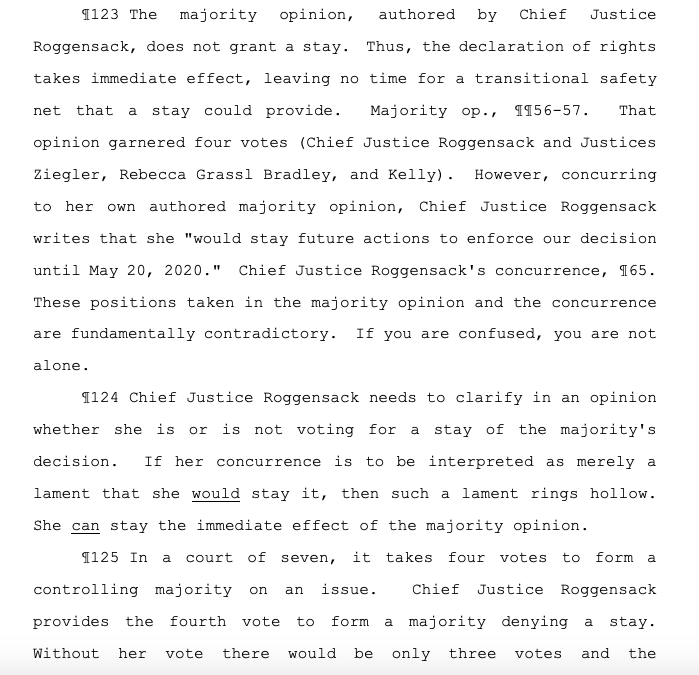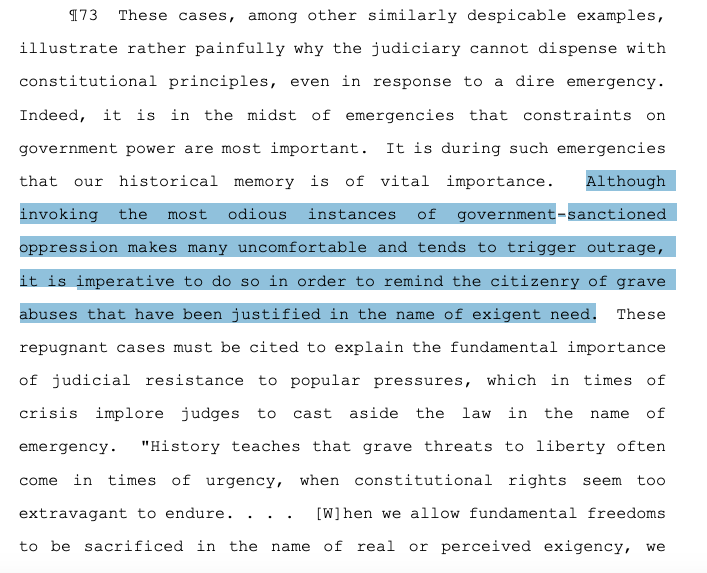Is that really a positive consequence? Alito wonders.
Shorter Kagan: Isn't your originalist argument BS?
Lessig is going to lose.
"Why doesn't the 10th Amendment, the state's preexisting authority, come in?"
Purcell responds: Because Congress defers to the states' authority to exercise control over their electors.
Ginsburg sounds satisfied with that response.
We're getting into the weeds here!!!!!
Roberts wants to know if there are ANY limitations on the power of the state to appoint electors or direct their votes. Again, a sensible hunt for a limiting principle.
Weiser: "The chaos that could result from upholding the 10th Circuit's ruling ... could occasion a constitutional crisis." Says bad actors could bribe electors with impunity.
But a state legislature could NOT hold a popular vote for president, reject the result, and appoint different electors.
The answer may be: nothing. So many of these questions really reveal problems with the Electoral College itself
Harrow: Yes. Legislators have the same right.
Harrow: They can be kicked out of their political party! That's the nature of political discretion.
(Is this the first LOTR reference during SCOTUS arguments?!)








